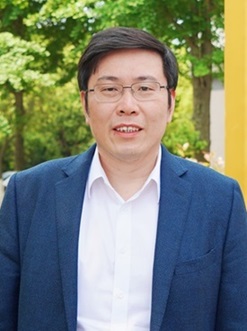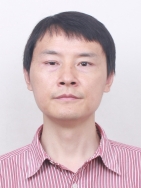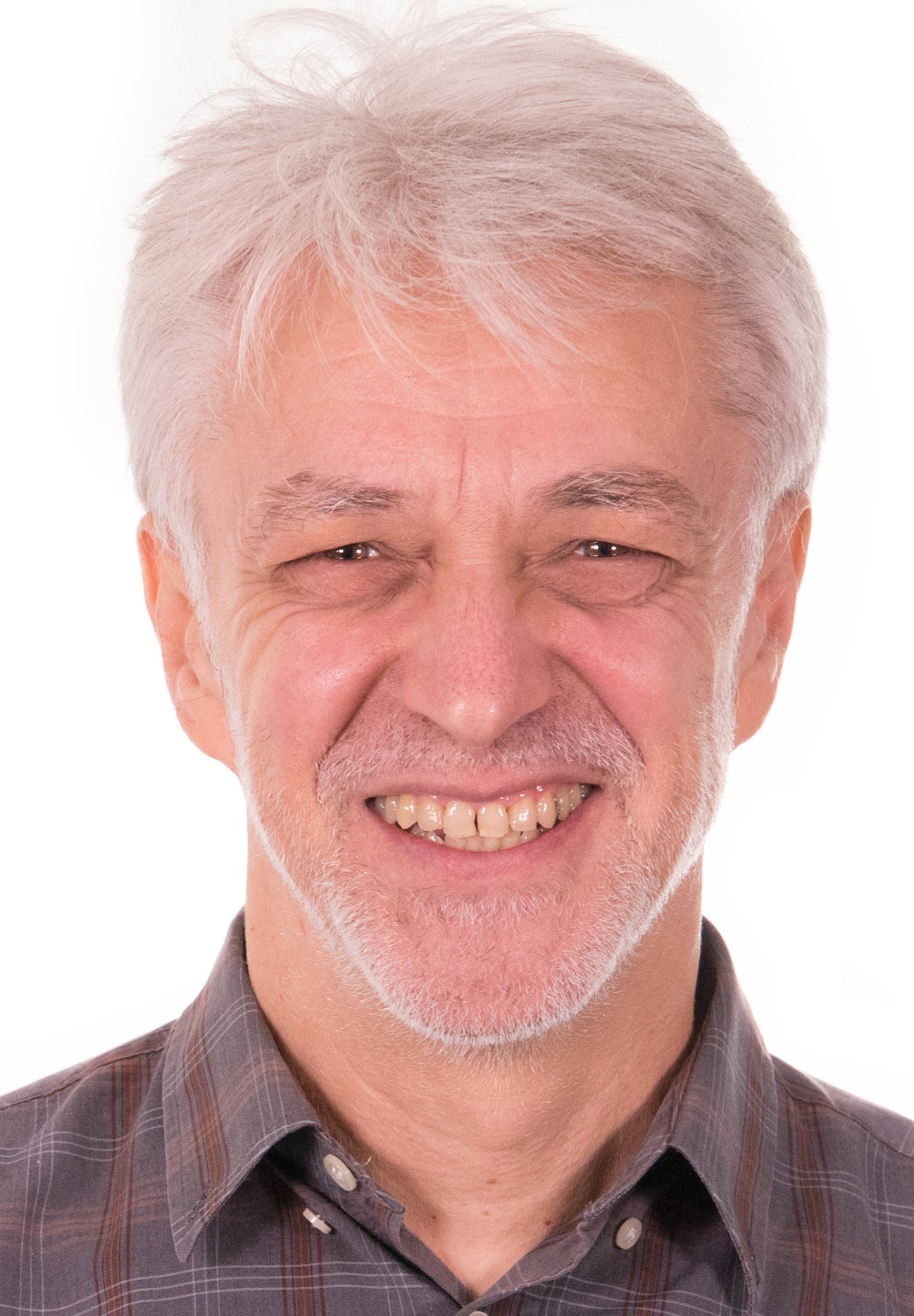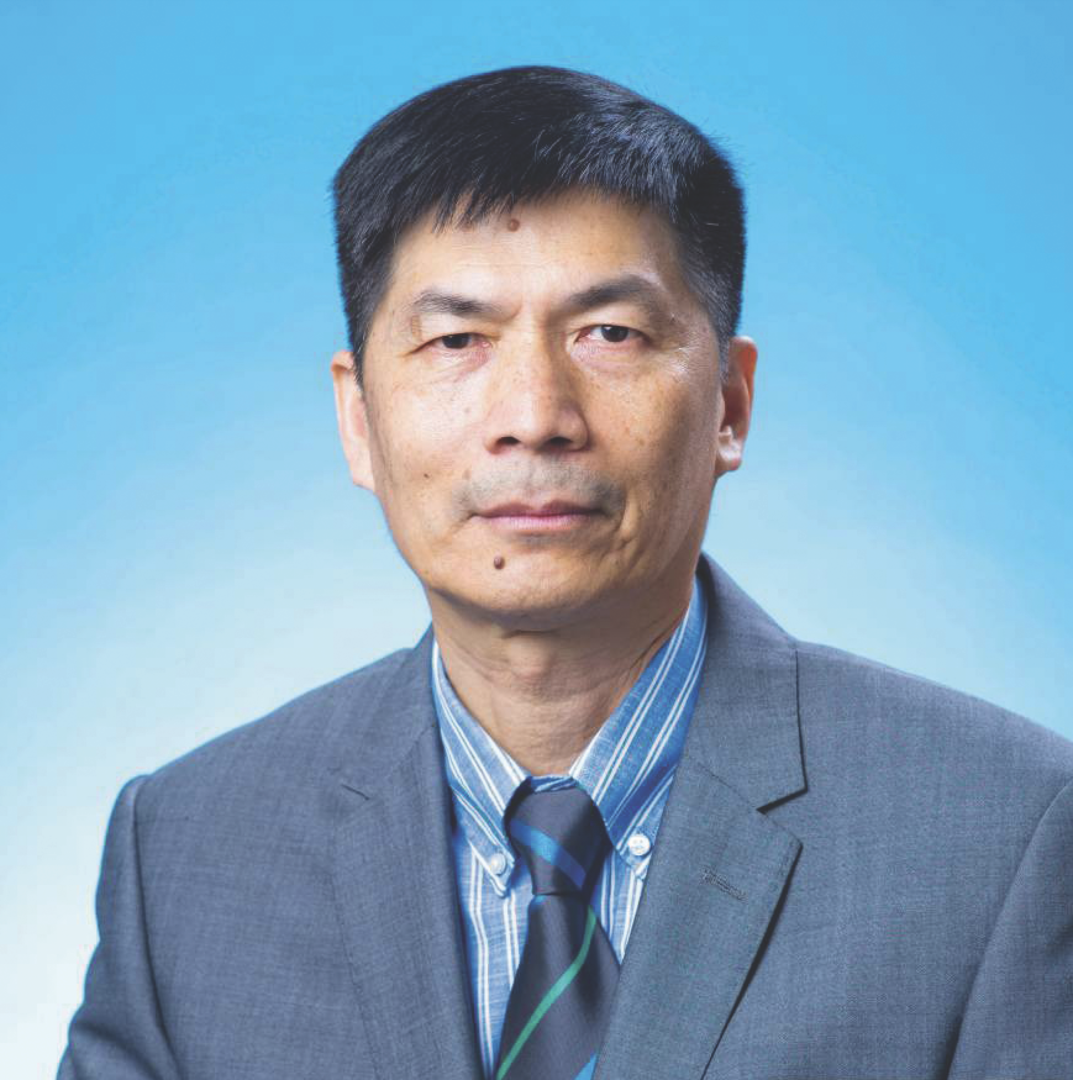Keynote Speaker Ⅰ

Prof. Minling Zhang
Southeast University, China
Speech Title: Research on Multi-Dimensional Classification
Abstract: learning from objects with rich semantics. Under the MDC framework, the object is associated with multiple class variables where each of them charaterizes the semantics of the object from heterogeneous label spaces. Multi-dimensional classification techniques have been widely used in many scenarios including text classification, crowdsoured learning, compute-aided medical diagnosis, etc. In this talk, the state-of-the-art on multi-dimensional classification will be introduced from three aspects. Firstly, the problem setting of multi-dimensional classification and its relationships to other classification frameworks are briefly discussed. Secondly, existing works as well as our recent progresses on designing multi-dimensional classification algorithms are summarized. Thirdly, related academic resources on multi-dimensional classification are given.
Bio: Min-Ling Zhang received the BSc, MSc, and PhD degrees in computer science from Nanjing University, China, in 2001, 2004 and 2007, respectively. Currently, he is a Professor at the School of Computer Science and Engineering, Southeast University, China. His main research interests include machine learning and data mining. In recent years, Dr. Zhang has served as the General Co-Chairs of ACML'18, Program Co-Chairs of PAKDD'19, CCF-ICAI'19, ACML'17, CCFAI'17, PRICAI'16, Senior PC member or Area Chair of AAAI 2022-2023, IJCAI 2017-2023, KDD 2021-2023, ICDM 2015-2022, etc. He is also on the editorial board of IEEE Transactions on Pattern Analysis and Machine Intelligence, ACM Transactions on Intelligent Systems and Technology, Science China Information Sciences, Frontiers of Computer Science, Machine Intelligence Research, etc. Dr. Zhang is the Steering Committee Member of ACML and PAKDD, Vice Chair of the CAAI Machine Learning Society, standing committee member of the CCF Artificial Intelligence & Pattern Recognition Society. He is a Distinguished Member of CCF, CAAI, and Senior Member of AAAI, ACM, IEEE.
Keynote Speaker Ⅱ

Prof. Witold Pedrycz
IEEE Life Fellow
University of Alberta, Edmonton, Canada
Speech Title: Credibility of Machine Learning Architectures: Granular Computing Developments
Abstract: Over the recent years, we have been witnessing numerous and far-reaching developments and applications of Machine Learning (ML). Efficient and systematic design of their architectures is important. Equally important are comprehensive evaluation mechanisms aimed at the assessment of the quality of the obtained results. The credibility of ML models is also of concern to any application, especially the one exhibiting a high level of criticality commonly encountered in autonomous systems. With this regard, there are a number of burning questions: how to quantify the quality of a result produced by the ML model? What is its credibility? How to equip the models with some self-awareness mechanism so careful guidance for additional supportive experimental evidence could be triggered?
Proceeding with a conceptual and algorithmic pursuits, we advocate that these problems could be formalized in the settings of Granular Computing. We show that any numeric result be augmented by the associated information granules and the quality of the results is expressed in terms of the characteristics of information granules such as coverage and specificity. Different directions are covered including confidence/ prediction intervals, granular embedding of ML models, and granular Gaussian Process models. Several representative and direct applications in the realm of transfer learning, knowledge distillation, and federated learning are discussed.
Bio: Witold Pedrycz (IEEE Life Fellow) is Professor in the Department of Electrical and Computer Engineering, University of Alberta, Edmonton, Canada. He is also with the Systems Research Institute of the Polish Academy of Sciences, Warsaw, Poland. Dr. Pedrycz is a foreign member of the Polish Academy of Sciences and a Fellow of the Royal Society of Canada. He is a recipient of several awards including Norbert Wiener award from the IEEE Systems, Man, and Cybernetics Society, IEEE Canada Computer Engineering Medal, a Cajastur Prize for Soft Computing from the European Centre for Soft Computing, a Killam Prize, a Fuzzy Pioneer Award from the IEEE Computational Intelligence Society, and 2019 Meritorious Service Award from the IEEE Systems Man and Cybernetics Society. His main research directions involve Computational Intelligence, Granular Computing, and Machine Learning, among others.
Professor Pedrycz serves as an Editor-in-Chief of Information Sciences, Editor-in-Chief of WIREs Data Mining and Knowledge Discovery (Wiley), and Co-editor-in-Chief of Int. J. of Granular Computing (Springer) and J. of Data Information and Management (Springer).
Keynote Speaker Ⅲ

Prof. Xiongbiao Luo
Xiamen University, China
Speech Title: Information Processing in Robotic Surgery
Abstract: Robotic surgery is the third wave of surgical innovation. It aggregates clinical data to digitally define the patient, the surgical field, and the surgical problem and to drive planning and execution based on various information, rather than based on anatomic planes alone, while it entails the application of artificial intelligence toward computer vision and robotic automation in surgery. This talk will discuss various information processing in surgical vision, navigation, and robotics. Surgical vision is to maintain and augment a clear field of in-situ surgical site, which is paramount not only for safety by preventing inadvertent injury, but also to improve precision and reduce operative time. Surgical navigation is a combination of computational anatomy, tracking algorithms or devices, image data confluence, and specialized instruments to assist and guide surgeons, and provides accurate real-time positioning of in vivo anatomical structures and organs as well as surgical instruments overlaid on preoperative images in the operating room. More interestingly, medical robotics with surgical navigation is an emerging field in digital healthcare. This talk will also update recent advances and ongoing work related to the three areas from my laboratory for building digital surgery.
Bio: Luo, Xiongbiao earned his PhD degree in Information Science from Nagoya University Japan in 2011. He was a Postdoctoral Fellow and Assistant Professor in Nagoya University, Japan, Visiting Assistant Professor at Technical University of Munich, Germany, Postdoctoral Fellow in the University of Western Ontario, Canada, and Professorship Researcher in the French National Institute of Health and Medical Research, France, Principal Technical Consultant of Boston Scientific Corporation, USA, and Visiting Professor at The Chinese University of Hong Kong. Since 2014, he is a Full Professor with the Department of Computer Science and Technology at the School of Informatics, National Institute for Data Science in Health and Medicine at the School of Medicine, and Director of XMU Center for Surgery and Engineering, Xiamen University, China. His current interest includes artificial intelligence in medical imaging, surgical vision, navigation, and robotics, computational photography, and computer vision. He edited seven books at Springer and has more than 150 peer-reviewed publications on these subjects in flagship journals and conferences including IEEE Transactions on Medical Imaging, Medical Image Analysis, MICCAI, and CVPR. More recently, he co-edited IEEE Transaction on Medical Robotics and Bionics Special Section on Surgical Vision, Navigation, and Robotics. He is an Associate Editor of IEEE Transaction on Medical Robotics and Bionics and IEEE Robotics and Automation Letters, Associate Editor of IEEE International Conference on Robotics and Automation (ICRA) and IEEE/RSJ International Conference on Intelligent Robots and Systems (IROS), Area Chair (2017-2021) of International Conference on Medical Image Computing and Computer Assisted Intervention (MICCAI), and Program Committee Member (2019-) of International Congress and Exhibition on Computer Assisted Radiology and Surgery (CARS). He is a Senior Member of IEEE and Reviewer for more than 100 international journals and conferences.
Keynote Speaker Ⅳ

Prof. Vladan Devedzic
University of Belgrade, Faculty of Organizational Sciences, Belgrade, Serbia
Speech Title: I've been around for a long, long year: AI in image processing and image generation
Abstract: The recent rapid development of Artificial Intelligence (AI), especially Machine Learning (ML), along with hardware advances and the growth of digital imaging technologies, has brought exciting progress in the fields of image processing, image generation, video processing, video generation, and computer vision in general. More specifically, advanced AI technologies and models have been used in image-to-image translation, sketch-to-image generation, conditional image generation, text-to-image generation, panoramic image generation, and scene graph image generation. The introductory part of this talk briefly surveys advanced AI techniques and tools underlying these applications, focusing primarily on image processing and image generation – deep learning techniques such as convolutional neural networks (CNNs) and generative adversarial networks (GANs) that can learn the underlying distribution of images and generate new images that are similar to the training data. Generative models, such as DALL E 2 and Stable Diffusion, power up advanced applications like Midjourney and Clearview AI that make it possible to generate high-quality images that are difficult to distinguish from real ones. Then the talk skims through recent applications of AI-based image processing and image generation. These cover a plethora of application domains – from AI-generated imaging in science, like simulation of complex physical systems such as the behavior of fluids or the structure of proteins, to generating high-quality medical images like MRI and CT scans that can be used for diagnosis and treatment, to AI-generated realistic simulations of astronomical phenomena such as black holes and supernovae, to AI-generated imaging in law enforcement, economy, finance, stock-market analysis, and so on.Special attention is paid to AI face-recognition technology and AI face-generation systems, as they have become two of the most important applications of AI. Face recognition systems have been around for a while, but have been improved significant.
Bio: Vladan Devedzic is a Professor of Computer Science and Software Engineering at the University of Belgrade, Faculty of Organizational Sciences, Belgrade, Serbia. His major long-term professional goal is a continuous effort to bring close together the ideas from the broad fields of Artificial Intelligence (AI) and Software Engineering. To this end, his current efforts and research interests are oriented towards practical engineering aspects of developing intelligent software systems that reflect the latest developments in AI and also towards foundational and epistemological aspects of AI.He has authored/co-authored more than 370 research papers (about 60 of them have been published in internationally recognized journals by publishers such as ACM, IEEE, Elsevier, etc.), six books (2 of them are monographs published by Springer), and several chapters in books on intelligent systems and software engineering edited by distinguished scientists. Vladan Devedzic has also developed several practical systems and tools, and actively participates and has participated in a number of other research and development projects (funded by EU programs like FP6, FP7, SEE-ERA, Erasmus+, LLP, etc.).He is the founder and the Chair of the GOOD OLD AI research network. Since 2021, he is a Corresponding Member of the Serbian Academy of Sciences and Arts (SASA).
Keynote Speaker Ⅴ

Prof. Youfu Li
Department of Mechanical Engineering,
City University of Hong Kong, Kowloon, Hong Kong
Speech Title: Visual sensing and tracking for robotic applications
Abstract: Visual sensing and tracking are needed in many engineering applications including robotics. In this talk, I will present our research in visual sensing for automated 3D sensing in general and for motion tracking for robotics in particular. Different approaches in our investigation in 3D vision will be reported. These include an active vision approach to 3D visual sensing. For robotic applications, visual sensing in 3D is often needed, but the calibration remains tedious and inflexible with traditional approach. To this end, we have investigated the relevant issues for different visual sensing systems. A flexible calibration method desires the vision system parameters to be recalibrated automatically or with less operator interference whenever the configuration of the system is changed, but practically this is often hard to achieve. Various attempts were made in our previous works to enhance the flexibility in the visual sensing calibration. I will present some them including the work on omni-directional visual sensing and tracking. Another case to present is that of gaze tracking where the issues in the modeling and calibration are addressed with our new calibration method developed.
Bio: You-Fu Li received the PhD degree in robotics from the Department of Engineering Science, University of Oxford in 1993. From 1993 to 1995 he was a research staff in the Department of Computer Science at the University of Wales, Aberystwyth, UK. He joined City University of Hong Kong in 1995 and is currently professor in the Department of Mechanical Engineering. His research interests include robot sensing, robot vision, and visual tracking. In these areas, he has published over 400 papers including over 180 SCI listed journal papers. Dr Li has received many awards in robot sensing and vision including IEEE Sensors Journal Best Paper Award by IEEE Sensors Council, Second Prize of Natural Science Research Award by the Ministry of Education, 1st Prize of Natural Science Research Award of Hubei Province, 1st Prize of Natural Science Research Award of Zhejiang Province, China. He was on Top 2% of the world’s most highly cited scientists by Stanford University, 2020 and Career Long. He has served as an Associate Editor for IEEE Transactions on Automation Science and Engineering (T-ASE), Associate Editor and Guest Editor for IEEE Robotics and Automation Magazine (RAM).
Keynote Speaker Ⅵ

Prof. Borko Furht
Florida Atlantic University
Speech Title: Visual sensing and tracking for robotic applications
Abstract: This keynote talk is about next generation of video coding standards including Versatile Video Coding (VVC) and Video Coding for Machines (VCM). The presenter’s team has been working on these two standards and produced more than 60 patents in the field, which were assigned to the Boston’s company OP Solutions. The talk will include technical innovations, which make, for example, the VVC standard about 50% more efficient in terms of compression ratio than the present HEVC standard for the same quality of video. There are a range of evolutionary technologies in VVC, including intra prediction, inter prediction, transformation, in loop filtering, palette coding, block partitioning, affine motion, and decoder side search, which will be presented in the talk. Besides technical innovations, we will also talk about the process of VVC and VCM standard development, and technical and political war besides the scene. Video coding standards and related patents provide a great generator of revenue. Only Netflix pays about $400 million royalty for using video coding standard for distributing its movies. In order to avoid paying such royalties Google developed VP9 open royalty-free video coding system mainly used on Google’s video platform YuTube. Several powerful companies, Google, Microsoft, Amazon, Cisco, and Netflix have developed open-source video compression technology AV1, which competes with VVC standard. In this talk we will discuss technical and political issues, video coding standards vs open systems.
We will also present the new video coding standard in making, Video Coding for Machines. VCM attempts to bridge the gap between feature coding for machine vision and video coding for human vision. In the talk we will discuss the basic VCM encoder and decoder architecture, and our patent applications how to implement VCM and apply in many applications such as surveillance and transportation systems.
In the last part of the talk, we will discuss how the blockchain technology can be applied in video streaming. There is a trend that blockchain technology will change entertainment and streaming industry and will soon completely overthrow the current video streaming. The blockchain technology will allow that the video is decentralized among many nodes, so it can be watched everywhere. We will describe how the decentralized video streaming works and the benefits of the decentralized video streaming.
Bio: Borko Furht is a professor in the Department of Electrical Engineering and Computer Science at Florida Atlantic University (FAU) in Boca Raton, Florida. He is also Director of the NSF-sponsored Industry/University Cooperative Research Center on Advanced Knowledge Enablement at FAU. Before joining FAU, he was a vice president of research and a senior director of development at Modcomp (Ft. Lauderdale), a computer company of Daimler Benz, Germany, a professor at University of Miami in Coral Gables, Florida, and a senior researcher in the Institute Boris Kidric-Vinca, Yugoslavia. Professor Furht received Ph.D. degree in electrical and computer engineering from the University of Belgrade. His current research is in multimedia systems, video coding and compression, 3D video and image systems, wireless multimedia, medical applications, and cloud computing. He is presently Principal Investigator and Co-PI of several multiyear, multimillion dollar projects. He is the author of numerous books and articles in the areas of multimedia, computer architecture, real-time computing, and operating systems. He is a founder and editor-in-chief of the Journal of Multimedia Tools and Applications (Springer) and he recently co-founded Journal of Big Data (Springer). He has received several technical and publishing awards, and has consulted for many high-tech companies including IBM, Hewlett-Packard, Xerox, General Electric, JPL, NASA, Honeywell, and RCA. He has more than 60 patents and patent applications in the area of video coding. He has given many invited talks, keynote lectures, seminars, and tutorials. He served as Chairman and Director on the Board of Directors of several high-tech companies and as an expert witness for Cisco, Qualcomm, Adobe, and Bell Canada.